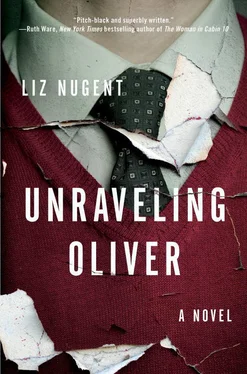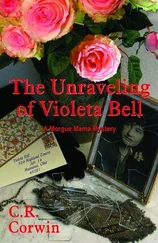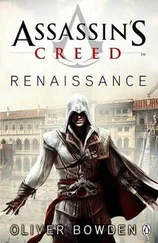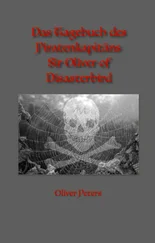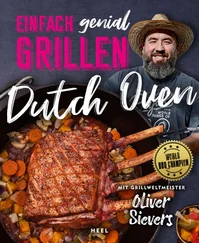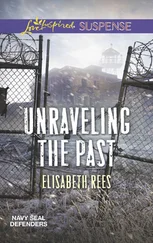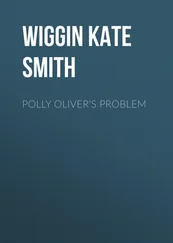Back in Dublin, in my sunless bedsit, I spent a week in bed, not leaving the house or speaking to anybody. How could I even begin to explain that I only meant to be a hero, and not a murderer?
The books were on the dresser accusing me, and yet I couldn’t bring myself to dispose of them. I didn’t look at them or open them. Finally, I dragged myself out of my decline. I left the house and went to a secondhand furniture shop, where I bought an old wooden box with a sturdy lock. I came home and locked the books into the box and hoped that I would forget where I had hidden the key.
• • •
Laura was not so easy to forget about. She wrote several letters, trying to convince me that “we” could keep the baby, that her parents would stand by us eventually. For a while I considered it but ultimately dismissed the notion. Marrying into a wealthy family was not a bad option, but raising a child? When I had just killed one? I do, after all, have a sense of morality. Then she wrote to say that she was going to have the baby in France and that I must go and join her there to raise our child. Another two months went by, and she wrote that she had changed her mind and was going to keep the baby anyway and bring it home, regardless of my involvement, sending me into paroxysms of panic. I never replied to any of the letters but waited with increasing anxiety for news of the baby’s birth.
The due date came and went and I heard nothing. But three months later, I assume in a last-ditch attempt to make me change my mind, she sent me a pink plastic hospital bracelet with “Baby Condell” written on it. There was no letter attached, and I was relieved that my name had not been used. Apparently, I had a child, a baby girl.
An unwanted child had an unwanted child. Perhaps the apple didn’t fall far from the tree after all. There are several clichés I could use to illustrate the fact that I am undoubtedly my father’s son. Like him, I did not want a baby. Maybe what I did was worse, by not acknowledging the child at all, but Laura was a sensible person and I knew that if Michael wasn’t allowed out of the closet, then Laura knew how difficult it would be to bring home what was then termed a “bastard” child.
In August 1974, I heard that Laura was coming home. Nobody mentioned a baby. I assume she had placed it for adoption. I hoped the baby would have a family that loved her. But at the back of my mind, I had a doubt that there had ever been a baby. I wondered about the possibility that Laura was never pregnant in the first place. I thought she may even have had an abortion or may have miscarried it. Why did she send me the bracelet and not a photograph? If she was really trying to convince me to keep it, wouldn’t she have sent me a photograph? Also, my instincts told me that Laura simply would not have given up her baby. She was braver than me.
I saw Laura in college the following October and avoided contact. She was thin and sickly-looking and appeared not to socialize. It was rumored that she was suffering from depression. Michael came to me and asked if I would talk to her. I couldn’t refuse. I approached her one day in the library. She was standing in front of a bookshelf in the anthropology section. I greeted her and asked if she would like to come and have a coffee with me. She didn’t speak but took my hand and placed it on her almost concave belly, just for a moment, and then she walked away. It was the same gesture she had made when I left her in France.
I was angry with her and wrote her a coded letter then, reassuring her that she had done the right thing but insisting she should just get over the past and get on with her life. She didn’t reply to my letter but returned it. I found it in shreds, wedged through the slats of my locker.
The girl was clearly unstable. Within a month or two, I heard that she dropped out of college, and then Michael called me to say that she was dead.
I tried to have a reaction to this. I tried to cry. I expected guilt or anger but instead there was a strange emptiness, another void to add to the one already at the core of my soul, if such a thing exists. I had rejected her and hurt her, but I felt nothing, except that she was one less reminder of that summer. I am sorry that she didn’t think life was worth living. Another man could have loved her the way she needed. She was very beautiful, after all, and adorable, pleasant, easy company most of the time, before France. Several men I knew would have wanted nothing more than a date with the alluring and elusive Laura Condell. I regretted that she died but it was not my fault. None of this was my fault. I was supposed to be wailing and gnashing my teeth apparently, but I had really done guilt by then, and it was of no benefit whatsoever.
• • •
I left college the following year with second-class honors, second division. I would have liked to start my own business importing wine or something like that, but with no capital and no collateral, it was out of the question.
Out of financial desperation and seeking guidance, I even went to my father’s house one evening and rang the doorbell. I stepped back and waited, saw the curtain twitch, saw him seeing me, and then the curtains were drawn by an unseen hand and the door remained shut.
Eventually I got a dull job working alongside unambitious people in the offices of the Inland Revenue as a clerical assistant, the lowest form of life, but it allowed me to rent an apartment on Raglan Road, a better part of Dublin. It didn’t take too long to move. One battered suitcase and a refuse sack containing my mugs, pots, kettle, and radio. And the locked wooden box, its key in my pocket.
My new home was even smaller than the one I had before, but location, location, location. I lived on beans and eggs and tea and met up with some of the old crowd every summer to go traveling, having scrimped since the previous year. I lied about what I was doing, pretended to be rising through the ranks of the diplomatic corps. My sense of envy festered.
By early 1982, I was getting rather depressed. It had taken me seven years to move up one grade from clerical assistant to clerical officer, and that was only because someone died. I was sick of the penury, sick of the pretense, and sick of myself. It seemed that I was doomed to this misery for the foreseeable future. There was no one to rescue me. Unable to control my thoughts, I recalled the hero who could have rescued me, if I hadn’t killed him. I remembered that kind old man, the boy, and a time when there were possibilities, when I was surrounded by decency. The box on top of the wardrobe in my room underneath its layer of dust called to me.
Several times in the intervening years, I had been on the point of throwing out the leather-bound books, thinking that doing so would ease my guilt. But I never did. It would have been sacrilegious. They represented something beautiful, something that I had destroyed, but which nevertheless I needed. I could not explain the need, not then. On that night, in that moment of torment, I only wanted to remember.
With shaking hands, I unlocked the box. I read the stories again. There were twenty-two of them in total, some already neatly written up by me in the pages of the leather-bound books, some written in blotted ink by a shaky hand on loose sheets that I’d carefully placed between the pages. I didn’t sleep for a week thereafter, but then a few bottles of cheap wine helped me to forget the child for whom they were written and the hand that wrote the original drafts. Remembering had been a mistake. Or so I thought.
Gradually it dawned on me that these stories could be my escape route. If they had not died, if I had become somehow part of their family, would these stories not also have become mine? I was the only one that the old man had trusted to transcribe them. Why? Why a strange Irish boy he didn’t know? Why not a local scholar? Why did he choose me? If Jean-Luc was no longer around to benefit from these stories, well then, why not me? The fire was just the result of a minor deception that went awry, I told myself, desperate to justify my plagiarism, and once I had made the decision, it was easy. I only needed to rewrite them in English, change any identifiable details, and publish them under a pseu-donym, just to be sure. If I were to publish a couple of thousand copies in an Irish print run, I might be able to secure a future for myself.
Читать дальше
